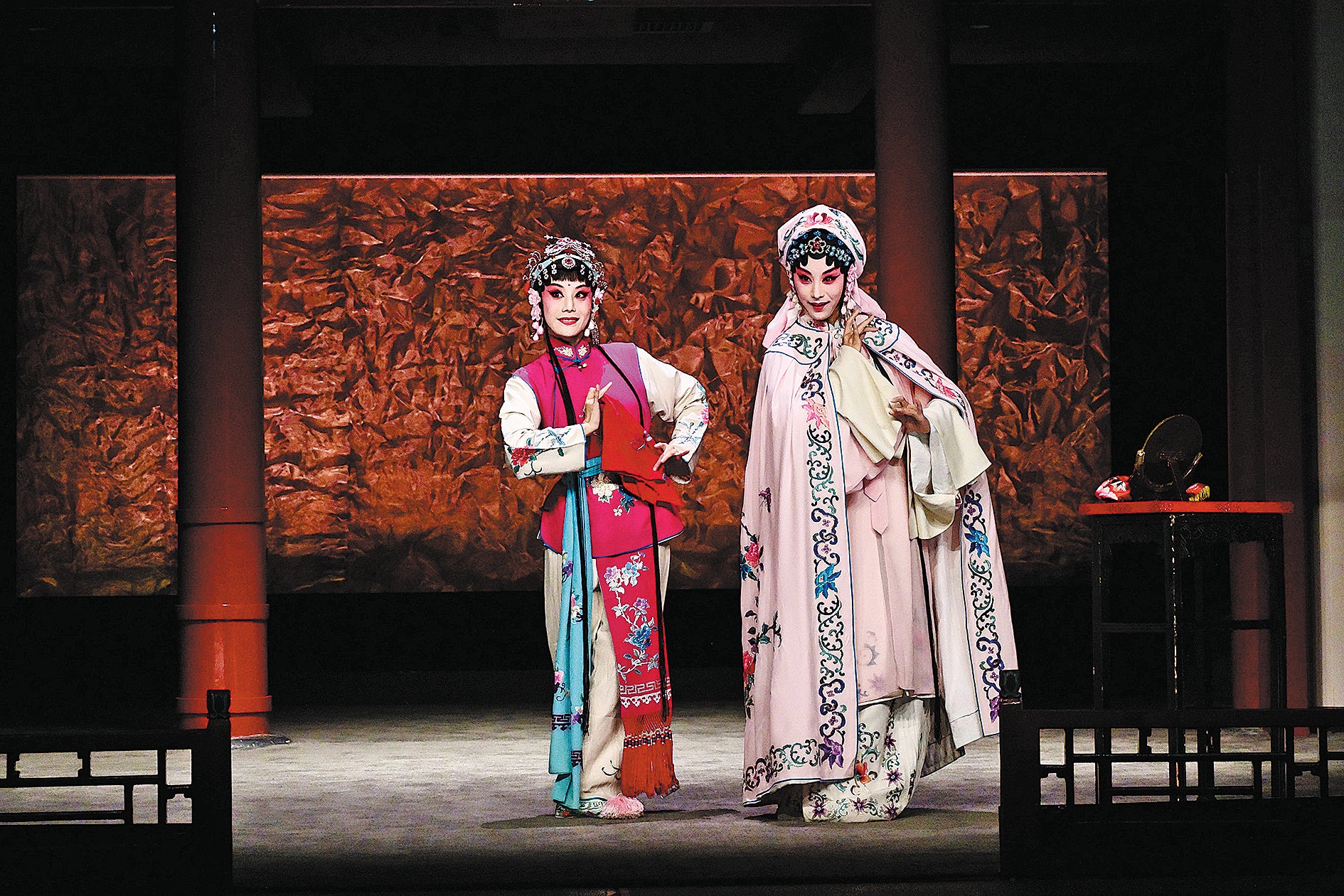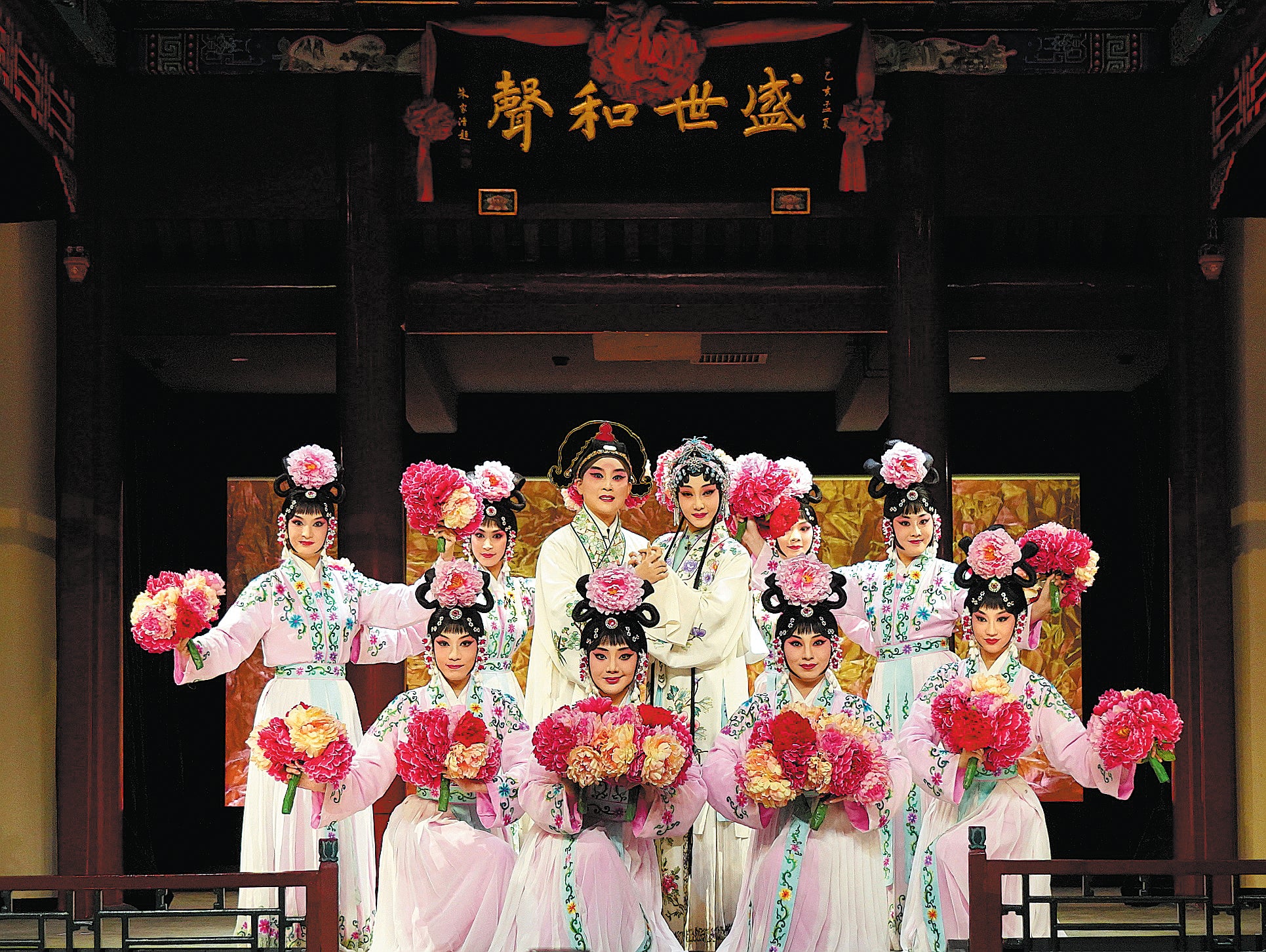Kunqu Opera wins award in Edinburgh
THE ARTICLES ON THESE PAGES ARE PRODUCED BY CHINA DAILY, WHICH TAKES SOLE RESPONSIBILITY FOR THE CONTENTS

Kunqu Opera, one of the oldest traditional Chinese art forms, with a history dating back about 600 years, has been recognised by the 2022 Global Art Promotion Award.
Established by the Asian Art Fund Scotland and endorsed by the City of Edinburgh Council and Asian Arts Award, the Global Art Promotion Award is set to celebrate the best new efforts to highlight classic theatre arts from different cultures and countries.
The presentation of the 2022 Global Art Promotion Award took place on October 26 at the City Chambers of the City of Edinburgh Council.
Yang Fengyi, artistic director and head of the Northern Kunqu Opera Theatre in Beijing, received an award in recognition of the innovative ways in which she and her company promoted the traditional Chinese art form of Kunqu Opera on a global basis.
Kunqu Opera, which originated in Kunshan, East China’s Jiangsu province, is performed in the melodic Suzhou dialect, which combines singing, dancing and acting.
Founded in 1957, the Northern Kunqu Opera Theatre is the only professional platform in northern China dedicated to Kunqu.

“For international audiences, Kunqu Opera is still very new,” says Chris Wang, chairman of Asian Arts Award, which was founded in 2014 to promote Asian art forms at the Edinburgh Festival Fringe. “Though they might have watched some performances staged by Chinese Kunqu Opera artists, there is more to offer to them about this great ancient art form.”
“We plan to have a series of events exploring and showcasing Kunqu Opera during the Edinburgh Festival Fringe in 2024. The series of events will be named ‘Kunqu Opera Rediscovered’,” says Wang. Additionally, Kunqu Opera classes will be held in Edinburgh.
In 2021, Wang visited Yang and the Northern Kunqu Opera Theatre in Beijing. They discussed bringing Kunqu Opera to more audiences worldwide. Besides performing classical masterpieces of Kunqu Opera, the company will also encourage its top artists to work with local artists in Edinburgh, giving the ancient art form a contemporary twist.
In August, the Northern Kunqu Opera Theatre and Asian Art Fund Scotland signed a strategic cultural promotion agreement. The ceremony was held at the 310-year-old Zhengyici Theatre in Beijing. It was a significant co-operation between Beijing and Edinburgh, marking Kunqu Opera’s first long-term participation in the Edinburgh Festival Fringe.
“We’ve invited theatre experts from the Edinburgh Festival Fringe to watch online shows performed by artists of the Northern Kunqu Opera Theatre. With the elaboration of Kunqu Opera artists, they gained a better understanding of the beautiful, old Chinese art form,” says Wang.
Yang says: “When we performed abroad, audiences were intrigued by Kunqu Opera. We offered them guidance before each performance, which helped them to understand the story and appreciate the beauty of the opera.”
In 2001, when Kunqu Opera was listed as one of the masterpieces of the oral and intangible heritage of humanity by UNESCO (in 2008, the world body inscribed it on the representative list of the intangible cultural heritage of humanity), Yang and her company travelled to the UNESCO headquarters in Paris.
After wrapping up their performances, one of the Kunqu Opera actresses, Wei Chunrong, received a note from an audience member, telling her how beautiful she was onstage and how beautiful Kunqu Opera was.
Yang says her company has been trying to seek creative ways to promote the opera, such as using social media platforms.
Like many traditional Chinese art forms, Kunqu Opera is passed down from one generation to another through singing demonstrations. It takes years to master basic skills, only after which can performers try to build their own styles.
Wang notes that there were some critical moments for the revival of Kunqu Opera. One was the year of 2001 when UNESCO recognised the old art form. The other is the huge popularity of a new version of the Ming Dynasty (1368-1644) classic, The Peony Pavilion, adapted by Chinese American writer Pai Hsienyung.
“We hope that the Beijing-Edinburgh strategic cultural promotion agreement and the appearances of Kunqu Opera artists at the Edinburgh Festival Fringe will be a new milestone for the development of Kunqu Opera,” says Wang.
